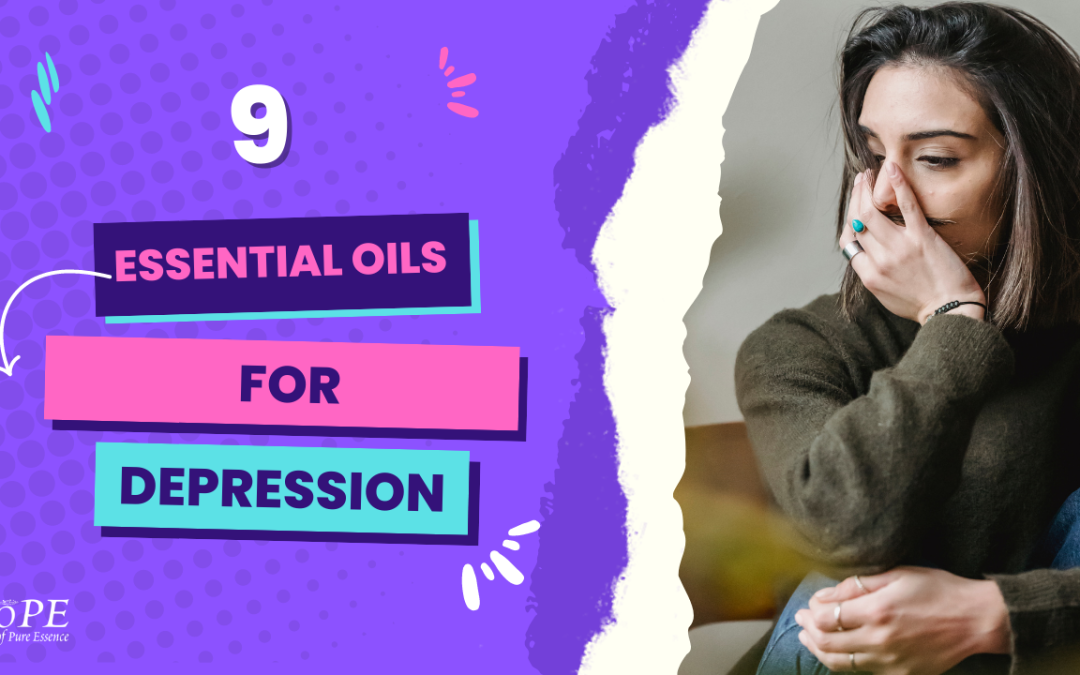Why Selfcare Is Not Selfish: Understanding The Benefits For Your Mental Health
Often, in our fast-paced lives, we neglect our personal needs to tend to the needs of others. We prioritize our work, family, and friends before taking care of ourselves. However, we fail to recognize that self-care is not selfish, but it is essential for our physical and mental well-being. Making time for self-care helps us to re-energize, reduces stress and anxiety, and improves our overall mental health. In this blog post, we will explore the significance of self-care and how it can help in nurturing a positive relationship with ourselves. We will delve into the various ways of incorporating self-care techniques in our daily routine, which will ultimately lead to a more fulfilling and healthier lifestyle. If you have been struggling with finding ways to take care of yourself amidst the daily chaos, this blog post is for you. We will guide you on how to prioritize your self-care and understand the profound benefits it can have on your mental health. By the end of the post, we hope to help you recognize the importance of self-care and empower you to take action towards a more fulfilling life.
Taking care of yourself is often seen as a selfish act but that couldn't be further from the truth. Self-care is important in maintaining your mental health and well-being. It's important to treat yourself with the same kindness and compassion as you treat others. By taking care of yourself, you're able to better take care of those around you.
Self-care doesn't have to be some grand gesture either. It can be as simple as taking a few moments to meditate, enjoy a cup of tea, or practice gratitude. It's important to carve out time in your schedule for yourself, whether it's a weekly bath or an afternoon walk. Prioritizing self-care can help you feel more balanced, refreshed, and energized.
Allowing yourself to indulge in self-care isn't something that should make you feel guilty. Instead, it can be seen as an important investment in yourself. By taking care of yourself, you're better able to show up as your best self for those around you. Take a moment today to prioritize your well-being and engage in some self-care. It's not selfish, it's necessary.
Understanding the Benefits of Self-Care
Self-care is not selfish, it is necessary. Taking care of oneself can positively impact both our physical and mental health. It is not just about indulging in luxury bath products and spa treatments, but also about taking time to prioritize our needs and well-being. It can be as simple as taking a few deep breaths or getting enough rest.
Self-care is vital for our mental health. When we prioritize our mental well-being, we are better equipped to handle the stress that comes with daily life. It helps us to be more self-aware, which allows us to acknowledge our thoughts and feelings. By taking the time to understand ourselves, we become better equipped to address any negative thoughts or emotions that may arise.
Self-care also has physical benefits. Taking care of our bodies can help us to feel more energized and focused. Getting enough sleep, eating a healthy diet, and exercising regularly all contribute to our overall physical well-being. When we are feeling our best physically, we are better able to face the challenges that come our way.
The importance of self-care cannot be overstated. Taking the time to care for ourselves allows us to be the best version of ourselves, which benefits not only us but those around us as well. Whether it's taking a bubble bath or going for a walk, self-care should be an integral part of our daily routine. Remember, self-care is not selfish, it's necessary.
How Self-Care Helps Your Mental Health
Self-care is not a selfish act. Many people have this misconception that self-care is all about pampering oneself with luxuries like going to a spa, getting a manicure, or taking a fancy vacation. But in reality, self-care is all about taking responsibility for your own well-being whether that's physical or mental. It's about taking the time to do things that make you feel happy, relaxed, and fulfilled. And, when it comes to mental health, self-care is an essential tool for improving and maintaining one's emotional well-being.
Self-care can mean different things for different people. Some might find solace in meditation or yoga while others might prefer a hot bubble bath or a good book. Whatever that might be, the key is to prioritize one's needs and make self-care a regular part of daily life. When we take the time out to nourish our minds and bodies, we create a foundation for a healthier and happier life. It can help lower stress levels, reduce anxiety and depression, and promote overall mental and emotional well-being.
So, why is self-care so crucial for our mental health? Well, it all comes down to the fact that our bodies and minds are interconnected. When we neglect our physical needs, it can lead to feelings of exhaustion, lethargy, and fatigue. Similarly, when we neglect our mental needs, it can lead to emotional burnout, stress, and anxiety. We need to treat our bodies and minds as a whole and recognize that our mental health plays an essential role in our overall well-being.
The decision to take care of oneself is not selfish, but rather a necessity. When we prioritize our well-being, we create a foundation for optimal mental and physical health. Small things like taking a walk in nature, journaling, or practicing a hobby can go a long way in promoting mental and emotional well-being. So, take the time out to prioritize self-care and see the positive impact it can have on your life.
Practicing Self-Care on a Daily Basis
Taking care of yourself is not selfish but necessary for a healthy mind and body. Practicing self-care on a daily basis can help you feel more energized and focused during the day. Making some small changes to your day-to-day routine can make a big difference in how you feel mentally and physically. Here are a few simple ways to practice self-care daily:
1. Take a few minutes to breathe deeply and meditate in the morning.
2. Make sure to stay hydrated by drinking plenty of water throughout the day.
3. Take 10-15 minutes break every hour to rest your eyes and stretch your legs.
4. Get enough sleep by sticking to a regular bedtime routine.
Self-care is not just about setting aside a little “me-time”, but also about taking care of yourself in all aspects of your life. Understanding the importance of self-care can help you become more productive in both your personal and professional life. Take time for yourself, it is not only necessary but also boosts your self-esteem.
Self-care is not a luxury but an essential part of maintaining a healthy mental and physical well-being. It's essential to set aside personal time every day to take care of yourself. The benefits of self-care are endless, including reducing stress and anxiety, increasing productivity, and improving overall health. Practicing self-care on a daily basis helps you rejuvenate your mind and replenish your body, making you ready for any challenges that come your way.
Self-care is imperative to maintaining a healthy mind and body. We should practice it every day of our lives. Small steps towards self-care can make a big difference. So, don't hesitate to take care of yourself. It's time to put yourself first!
Taking Action to Prioritize Your Self-Care
It's easy to get caught up in the hustle and bustle of daily life and forget to take care of ourselves. However, prioritizing self-care is essential to maintaining good mental health. This includes taking time out for ourselves, doing things that make us happy and relaxed, and making sure we are taking care of our physical health.
One way to prioritize self-care is to create a self-care routine. This can include things like taking a bubble bath, going for a walk, or practicing yoga. Whatever activities help you recharge and feel calm, make sure to schedule them into your week. This can help make self-care a habit and ensure that you are regularly taking care of yourself.
It's important to remember that self-care is not selfish. In fact, it's essential to our overall well-being. When we take care of ourselves, we are better able to manage stress, improve our mood, and feel more energized. So, next time you feel guilty for taking time out for yourself, remember that it's not only okay but necessary for your mental health.
A commitment and effort are required to prioritize self-care, but the benefits are worth it. By taking action and making self-care a priority, you can improve your mental health and overall well-being. Remember to take care of yourself, you deserve it!
[outline_6]
Taking care of yourself is one of the noblest things that you can do. Whether it is taking the day off to enjoy a relaxing picnic or treating yourself to your favorite foods, self-care is something that you definitely need. When you take good care of yourself, you are not only improving your physical health, but you're also doing wonders for your mental health. Self-care is something that everyone needs and should practice regularly.
Self-care is not selfish, and that is an established fact. It is essential to understand that when you take care of yourself, you become a more productive and happier person. While it may feel like you're being selfish to take time away from work or other obligations, it's not. You need to give yourself room to breathe and recharge in order to be your best self.
Nowadays, taking care of yourself has become more important than ever. With the fast pace of life, it is easy to forget about yourself and to focus on the things around you. However, it's important to remember that in order to be able to take care of the world around you, you need to take care of yourself first. So next time you make a plan, be sure to build in some time for yourself. Whether it be taking a long bubble bath or taking a walk in your local park, prioritizing self-care will work wonders for your mental health.
Conclusion
To wrap things up, it is important to remember that self-care is not selfish. It is an integral part of maintaining physical and mental health. Engaging in activities that help us feel nurtured and fulfilled can have a significant impact on our mental health and well-being in the long run. When we take care of ourselves, we are better equipped to handle life's challenges and can be more present for others in our lives. So, let us all make self-care a priority and recognize that it is not a luxury but a necessity for our mental and physical health. Remember, you cannot pour from an empty cup, and taking time for yourself is a beautiful act of self-love.



